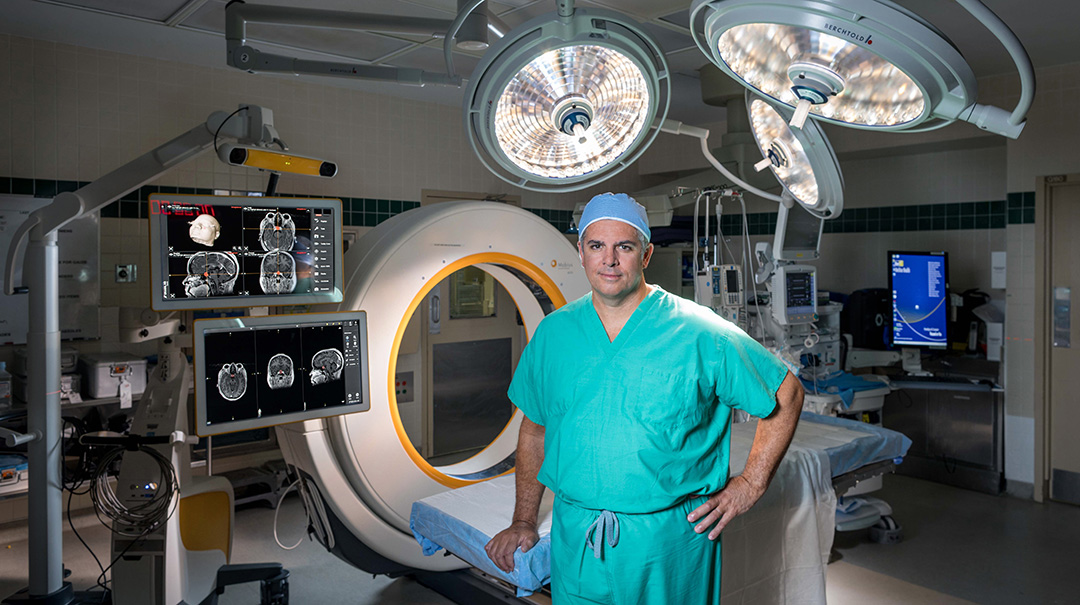Find care now
If you are experiencing a medical emergency, please call 911 or seek care at an emergency room.

"Measure twice, cut once.” It’s a simple expression that reminds us to be precise, and it applies in many situations—even complicated neurosurgical procedures.
Traditional imaging systems made adhering to this old adage a challenge for neurosurgeons. Large, stationary computed tomography (CT) scanners offer limited usefulness during surgery that made surgeries take longer and sometimes led to the need for multiple procedures.
Enter the Airo Mobile Intraoperative CT system—a portable, high-definition imaging system that has redefined our neurosurgical processes. We are the first hospital in Washington, D.C., to use this revolutionary system, and we now can offer faster, more precise neurosurgery with better outcomes and less radiation exposure than ever before. Having this advanced technology has allowed us to care for patients when other hospitals couldn’t.
Mobility matters in CT scanning
The huge, stationary scanning machines of old limited us to either scanning patients before their procedures or transporting them from the operating room to the imaging lab mid-surgery, then back to the operating room.
With the Airo scanner, we bring the scanner to the patient instead of the other way around, and just one person can move it. We can create accurate CT images of the brain or spine right up to the time surgery begins and also can scan in real time during the surgery to guide us more effectively during complex procedures, which often leads to quicker, more precise surgeries.
Having the CT scanner in the operating room also lets us instantly learn whether a procedure is successful. With the old scanners, because of infection-control procedures, we had to wait until the patient was out of surgery and recovering the following day before we could do a follow-up scan. The old scanners were not surgically sterile, which caused delays in scanning.
If we found anything wrong during follow-up, we then would have to take the patient back into surgery. Now, we can scan the patient immediately after the surgery, while they are still asleep, to make sure we have a successful outcome or make any revisions during the same procedure. This technology already is resulting in more patients seeking neurosurgery at MedStar Washington Hospital Center.














